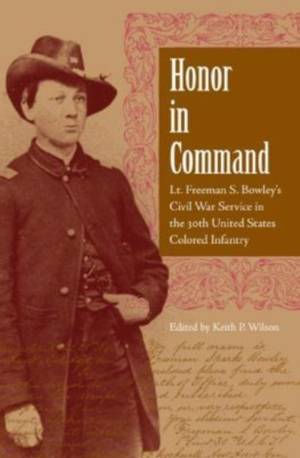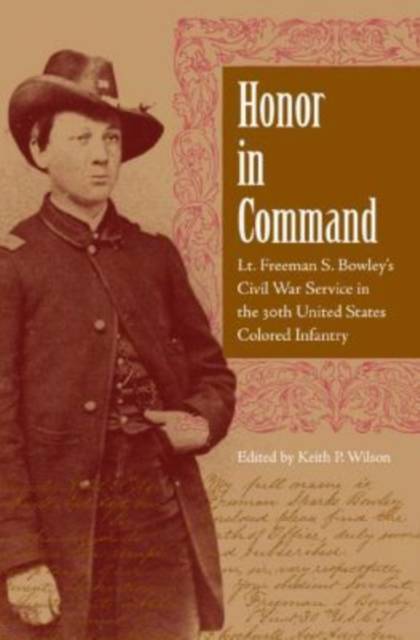
- Afhalen na 1 uur in een winkel met voorraad
- Gratis thuislevering in België vanaf € 30
- Ruim aanbod met 7 miljoen producten
- Afhalen na 1 uur in een winkel met voorraad
- Gratis thuislevering in België vanaf € 30
- Ruim aanbod met 7 miljoen producten
Zoeken
Honor in Command
Lt. Freeman S. Bowley's Civil War Service in the 30th United States Colored Infantry
Freeman S. Bowley
€ 60,95
+ 121 punten
Omschrijving
This memoir by Freeman Sparks Bowley, a young white officer who served as a lieutenant in a regiment of U.S. Colored Troops in the Union Army, is the work of a superb storyteller who describes how his Civil War experiences transformed him from a callow youth into an honorable man. Describing in detail his relationship with the men in his company, Bowley extols the role of black soldiers and their officers in the Union victory. Bowley's service in the Union Army began when his regiment joined Grant's 1864 Overland Campaign. His courage was tested at the battles of the Wilderness and the Crater. Captured at the Crater, Bowley spent seven months in prison in Columbia, South Carolina. Paroled in March 1865, he rejoined his regiment to serve in the army of the occupation in the coastal regions of North Carolina and was mustered out of military service in December 1865. His memoir is an invaluable record of the fighting capabilities of black soldiers during the Battle of the Crater and the strategies they employed to cope with racism and adapt to military life. It is also a detailed account of the social dynamics of prison life. Editor Keith Wilson's three introductory essays historically position the coming of age narrative as a significant account of race relations in the Union Army and explore Bowley's developing sense of manhood and honor, offering a unique perspective to Civil War scholars and history buffs.
Specificaties
Betrokkenen
- Auteur(s):
- Uitgeverij:
Inhoud
- Aantal bladzijden:
- 320
- Taal:
- Engels
- Reeks:
Eigenschappen
- Productcode (EAN):
- 9780813029986
- Verschijningsdatum:
- 22/12/2006
- Uitvoering:
- Hardcover
- Formaat:
- Genaaid
- Afmetingen:
- 165 mm x 234 mm
- Gewicht:
- 576 g

Alleen bij Standaard Boekhandel
+ 121 punten op je klantenkaart van Standaard Boekhandel
Beoordelingen
We publiceren alleen reviews die voldoen aan de voorwaarden voor reviews. Bekijk onze voorwaarden voor reviews.








